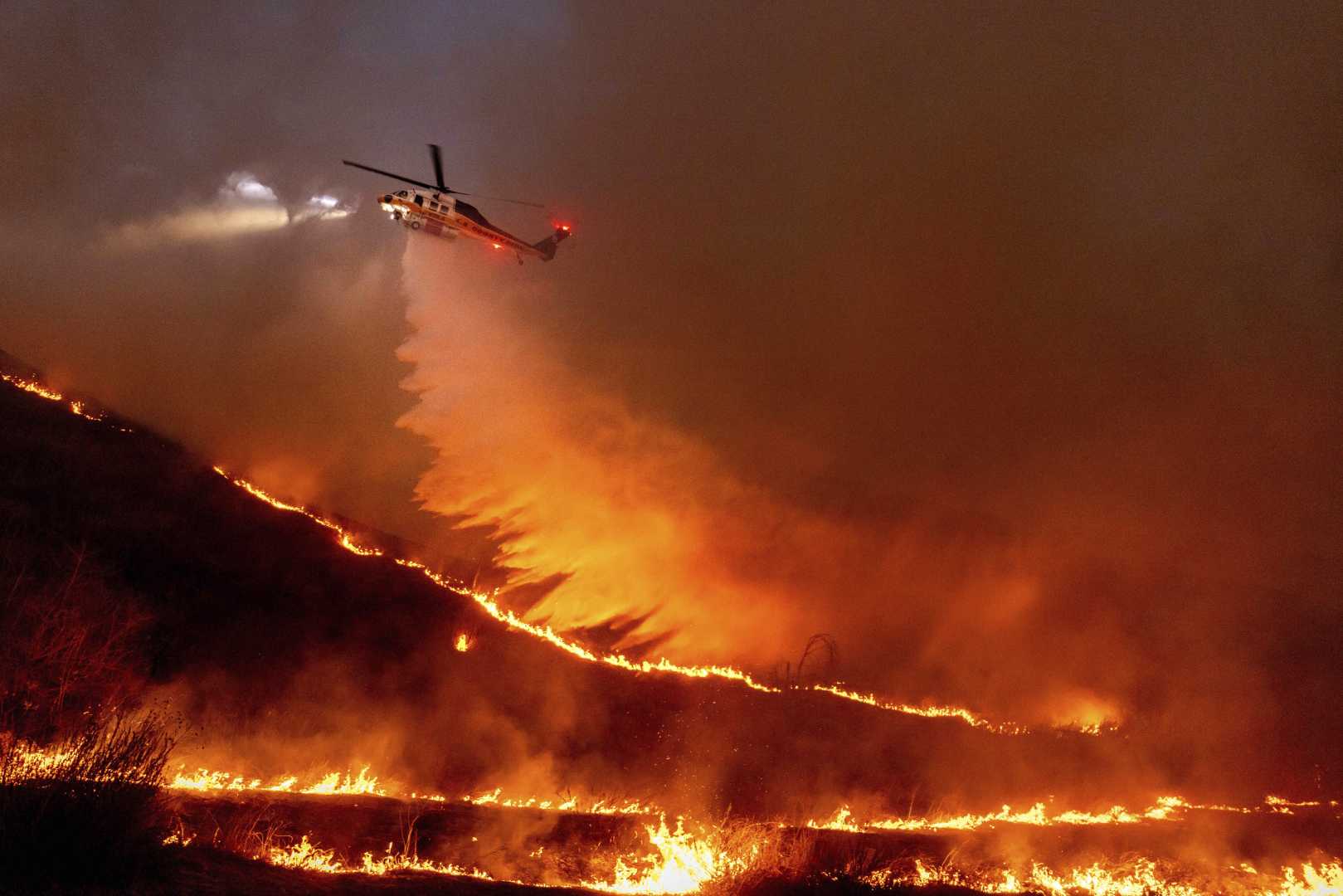News
Los Angeles Wildfires Spark Political Tensions Amid Climate Crisis

LOS ANGELES, Calif. — The Kenneth Fire, one of the worst wildfires in Los Angeles history, continues to ravage the West Hills section of the city, destroying thousands of homes and igniting political tensions as climate change exacerbates the crisis. The blaze, which began in early January 2025, has been fueled by unprecedented winds reaching up to 100 mph, making containment efforts nearly impossible.
As the fire rages, political leaders are clashing over disaster response and relief efforts. Republicans, including Sen. Ron Johnson (R-WI), have criticized California‘s handling of the crisis, blaming state policies for the devastation. “I certainly wouldn’t vote for anything unless we see a dramatic change in how they’re gonna be handling these things in the future,” Johnson said on Newsmax, accusing the state of mismanaging water resources and forest maintenance.
However, experts and local officials refute these claims. California reservoirs are at capacity, and state agencies have been actively managing undergrowth in fire-prone areas. The primary driver of the wildfires, they argue, is climate change. “These regions around Los Angeles have burned many times, but almost never in the middle of January,” said one wildland firefighter, who noted that extreme weather conditions have made traditional firefighting tactics ineffective.
The disaster has also reignited debates over federal disaster relief and political leverage. Former President Donald Trump and other conservatives have suggested using the crisis to extract concessions from Democrats, particularly in blue states like California. Meanwhile, Democrats are pushing for a comprehensive climate bill to address the root causes of such disasters, though Republican opposition has stalled progress.
Amid the political maneuvering, the human toll of the wildfires continues to mount. Thousands of residents have been displaced, and emergency responders are working around the clock to protect lives and property. The crisis underscores the urgent need for coordinated action on climate change and disaster preparedness, as experts warn that such events will become more frequent and severe in the coming years.
As the Kenneth Fire burns on, the nation watches closely, grappling with the intersection of environmental catastrophe and political strife. The stakes are high, not just for Los Angeles, but for the future of disaster response in an era of escalating climate crises.












